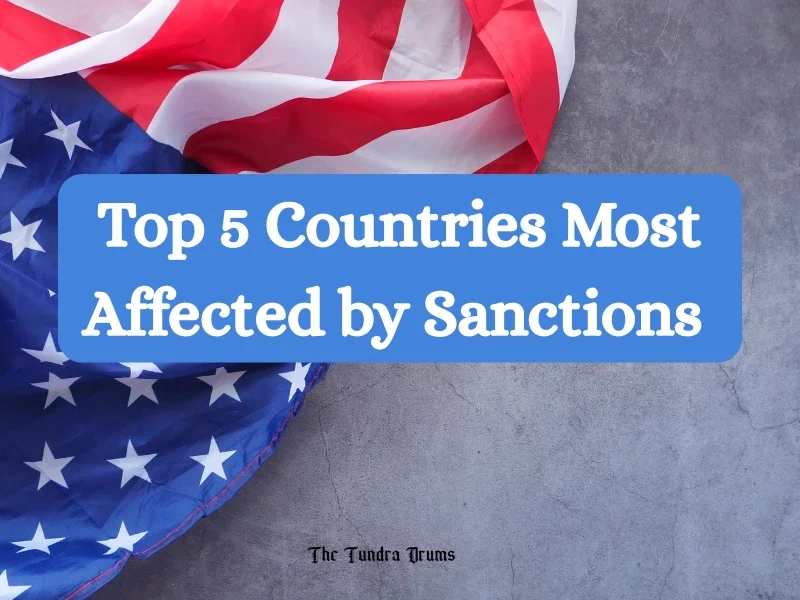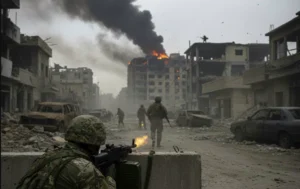The article highlights the severe economic consequences of these sanctions, including sharp GDP declines, skyrocketing inflation, and a significant drop in oil exports.
Sanctions are powerful tools used by governments and international organizations like the United Nations to influence countries’ behavior. They aim to curb actions such as military aggression, human rights violations, and violations of international law. However, the economic, social, and political consequences of sanctions can be devastating for the countries affected.
Table of Contents
1. Russia: The Economic Superpower Under Siege
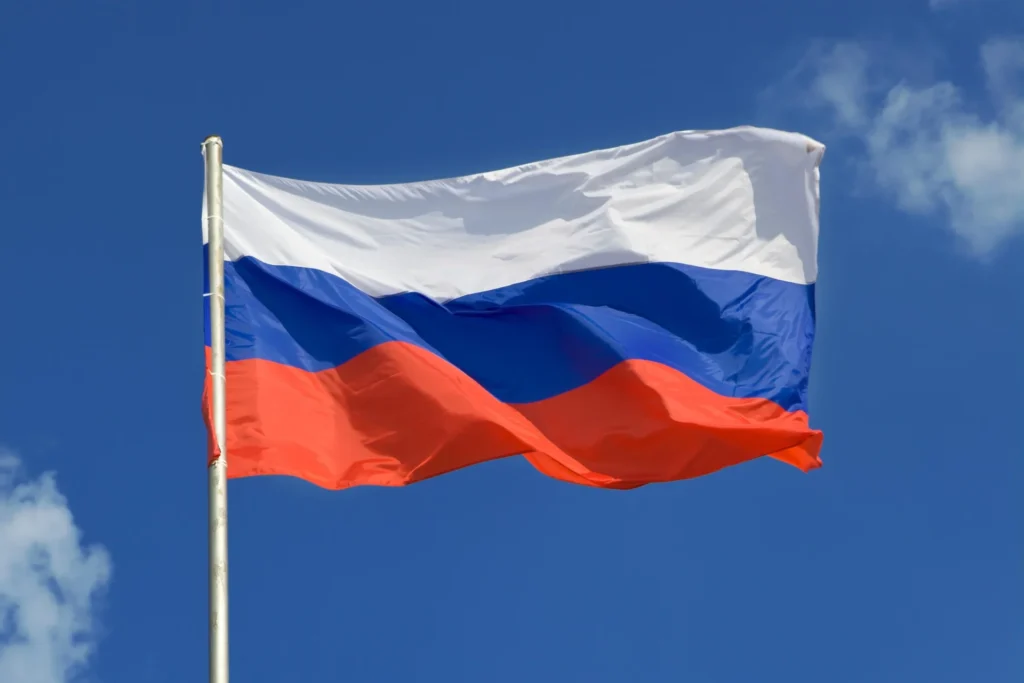
Why Did Russia Get Sanctioned?
1. Military Actions:
Russia took control of Crimea in 2014, a part of Ukraine, without permission. Later, in 2022, Russia started a big war by invading Ukraine. Because of these actions, many countries like the US, the European Union, and others have punished Russia by imposing sanctions on it.
2. Cyberattacks and Election Interference:
Russia is also accused of trying to interfere in other countries’ elections and carrying out cyberattacks (hacking) on important organizations around the world. This made countries even more worried and led to more sanctions.
What Are the Main Sanctions Against Russia?
- 1. Energy Sector Restrictions:
- 2. Banking Restrictions:
- 3. Military Technology Limits:
Russia earns a lot of money by selling oil and gas. Many countries stopped selling Russia important technology and equipment needed to find and produce oil and gas. This makes it harder for Russia to keep its energy business strong.
Russia’s banks were removed from SWIFT, a global system that helps banks send money to each other safely and quickly. Without SWIFT, it is very hard for Russian banks to do business with other countries.
Countries stopped sending Russia advanced military technology and equipment. This makes it difficult for Russia to improve its weapons and military tools.
How Have These Sanctions Affected Russia’s Economy?
Financial Losses & GDP Growth
Since the 2014 sanctions, Russia has lost billions, with losses growing after the 2022 invasion. Its GDP contracted by 4.5% in 2022 and is projected to grow only 1.35% in 2025.
Oil Exports & Inflation
Oil exports dropped over 40%, causing a $60 billion revenue loss in 2023. Inflation reached 17% in 2022 and remains high in 2024, further impacting the economy.
Trade & Financial Isolation
- Trade Problems: Sanctions hinder Russia’s ability to sell oil, gas, and other products, reducing revenue and trade opportunities.
- Financial Isolation: Exclusion from SWIFT limits Russian banks’ ability to engage in international trade and finance.
Military & Technological Impact
- Military Setbacks: Restrictions on advanced military technology hinder Russia’s ability to maintain and upgrade its military.
- Technology Restrictions: Sanctions prevent Russia from modernizing its military and industrial sectors.
Oil Revenue & Shadow Fleet
Sanctions target Russia’s “shadow fleet” of oil tankers, disrupting oil exports and revenue, weakening one of its main income sources.
Exceptions
Russia’s nuclear energy sector remains largely exempt from sanctions, allowing continued international trade in this area.
Expanded and Latest Sanctions (2025 Updates)
In 2025, the EU’s 17th sanctions package added 75 new targets linked to Russia’s military and defense, including a major shipping company. It also banned 189 Russian oil tankers in the “shadow fleet” to block oil exports. Russia remains cut off from SWIFT, with bans on financial services and professional help.
Imports like metals and seafood are restricted, plus limits on Russian airspace and flights. Over 2,400 people and companies are sanctioned, including those in other countries helping Russia. The EU and the US work closely but may adjust policies depending on politics.
Key points:
- 75 new military-related sanctions
- 189 oil tankers banned
- Russia excluded from SWIFT
- Bans on imports and services
- Restrictions on Russian flights
- Sanctions on over 2,400 targets
- Includes foreign companies aiding Russia
2. Iran: Economic Isolation Amidst Conflict
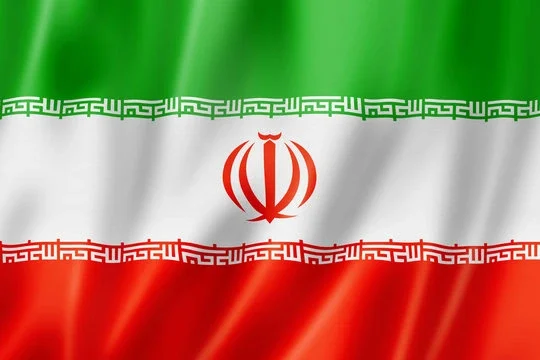
Why Has Iran Been Sanctioned?
1. Nuclear Program Concerns:
Iran’s nuclear program has been a major reason for international sanctions. Starting secretly in the late 1980s, Iran began enriching uranium, which can be used for both peaceful energy and nuclear weapons.
The world, especially the United States, European Union, and the United Nations, worried that Iran might develop nuclear weapons, violating its promises under the Nuclear Non-Proliferation Treaty (NPT) signed in 1968.
Over the years, Iran refused to stop uranium enrichment despite UN Security Council demands, leading to a series of increasingly strict sanctions from 2006 onward.In 2015, Iran and world powers signed the Joint Comprehensive Plan of Action (JCPOA), limiting Iran’s nuclear activities in exchange for sanctions relief. However, the US withdrew from the deal in 2018, imposing harsh sanctions.
Since then, Iran has expanded its nuclear program again, causing more international alarm.
2. Support for Militant Groups:
Iran is accused of backing militant groups in the Middle East, such as Hezbollah and others. Because of this, the US designated Iran a state sponsor of terrorism in 1984, leading to additional sanctions unrelated to the nuclear issue.
These sanctions restrict Iran’s access to arms, foreign aid, and financial services.
Key Sanctions on Iran
1. Oil Export Restrictions:
Oil exports are Iran’s main source of income. Sanctions have targeted this sector heavily to reduce Iran’s government revenue. The US and EU have banned imports of Iranian oil, restricted investments in Iran’s oil and gas industry, and limited Iran’s ability to sell crude oil internationally. For example, under the JCPOA, Iran’s oil exports were capped at about half their 2011 levels. After the US left the deal, sanctions further cut Iran’s oil sales.
2. Banking System Isolation:
Iranian banks have been disconnected from SWIFT, the global financial messaging system, making it very difficult for Iran to conduct international banking and trade. Sanctions also target Iran’s central bank and financial institutions linked to the government and the Islamic Revolutionary Guard Corps (IRGC), further isolating Iran financially.
3. Nuclear and Military Technology Restrictions:
Sanctions prohibit Iran from importing nuclear-related materials and technologies that could support its weapons program. There are also bans on arms sales and dual-use technologies (items that can be used for both civilian and military purposes). These restrictions aim to prevent Iran from advancing its nuclear and missile capabilities.
Expanded and Latest Sanctions on Iran (2025 Updates)
In 2025, sanctions on Iran remain strong to pressure it over its nuclear program and regional activities. The U.S. renewed a tough campaign targeting all parts of Iran’s oil trade, while updating warnings to the shipping and financial sectors about sanctions evasion. The EU extended sanctions, freezing assets and banning travel for military-linked individuals and companies. Sanctions also target Chinese firms helping Iran export oil through front companies. Despite tensions and U.S. strikes on nuclear sites, talks to revive the nuclear deal continue.
Key points:
- U.S. targets Iran’s oil trade and sanctions evasion
- EU extends sanctions on military-linked targets
- Sanctions on Chinese firms aiding Iranian oil exports
- Nuclear negotiations are ongoing despite tensions
Economic Impact of Sanctions on Iran
Oil Revenue Decline
Sanctions have led to an 80% decline in Iran’s oil exports, drastically reducing government revenue and limiting its ability to fund military and domestic programs.
Financial Isolation
Iran’s disconnection from SWIFT and sanctions on its financial institutions make international trade and investment extremely difficult, isolating the country from the global economy.
Sanctions Evasion Efforts
To bypass sanctions, Iran has developed complex networks and deceptive shipping practices, but international enforcement continues to close these loopholes.
Economic Impact
- GDP Growth: Iran’s GDP is expected to grow by just 0.3% in 2025.
- Inflation: Inflation has surged to 43.3% in 2025, significantly increasing the cost of living for its citizens.
Inflation in 2025
43.4
Political Impact of Sanctions on Iran
Regional Influence
Sanctions also target Iran’s support for militant groups in the Middle East, aiming to reduce its influence and involvement in regional conflicts, especially in countries like Syria, Iraq, and Lebanon.
International Relations
The EU and the U.S. continue to maintain a tough stance on Iran due to its nuclear program and regional actions. Despite ongoing sanctions, diplomatic negotiations persist, though these efforts have yet to produce significant resolutions.
Indicator | 2023 | 2025 Forecast |
GDP Growth | -6% | 0.3% |
Inflation Rate | 30% | 43.3% |
Oil Exports | 500,000 bpd | 1.2 million bpd |
3. North Korea: Isolated and Struggling for Survival
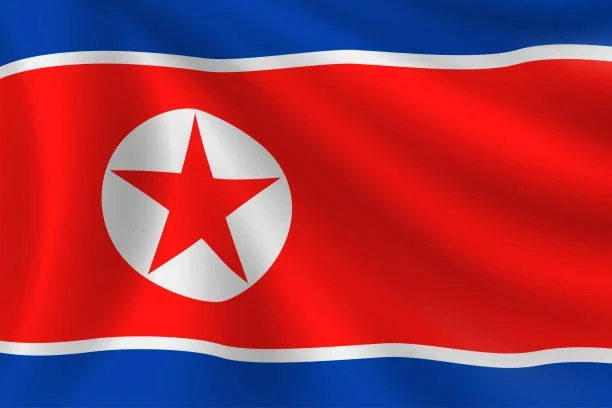
Why Sanctioned:
- Nuclear Weapons: North Korea’s nuclear weapons development is the primary reason for international sanctions.
- Military Aggression: Frequent missile tests and threats of war.
Key Sanctions:
- Trade Restrictions: Bans on coal, textiles, and iron ore exports.
- Technology Exports: Restrictions on high-tech equipment needed for military development.
- Humanitarian Aid: Despite exceptions, sanctions limit aid for food and medicine.
Economic Impact:
- GDP: North Korea’s GDP is projected to remain at a mere $28 billion in 2025.
- Trade Decline: Foreign trade dropped by 80% between 2017-2020.
- Currency Devaluation: The North Korean won lost over 60% of its value against the dollar between 2018-2024.
Main Points:
- GDP Growth: Remains the lowest in the world.
- Trade: Severely limited trade with China.
- Unemployment: High unemployment with fewer job opportunities for the population.
4. Syria: A Nation in Ruins
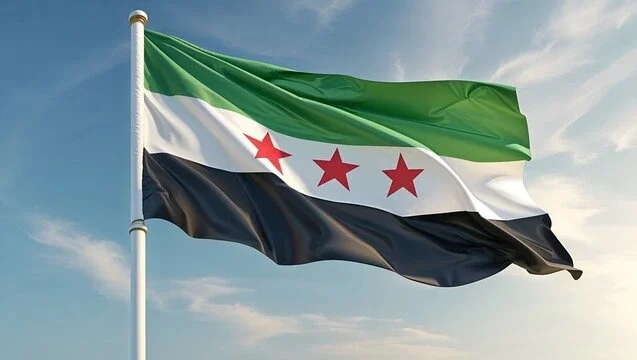
Why Sanctioned:
- Civil War: Ongoing civil war, government violence against its own people.
- Chemical Weapons Use: Alleged use of chemical weapons against civilians.
- Support for Self Defence: Alignments with Iran and Hezbollah.
Key Sanctions:
- Oil and Gas: Restrictions on the energy sector.
- Banking and Trade: Syria is cut off from the global financial system.
- Military Technology: Sanctions on arms sales and military equipment.
Economic Impact:
- GDP: Syria’s GDP has contracted by over 60% since the war began in 2011.
- Poverty: Over 80% of Syrians live in poverty.
- Inflation: Hyperinflation reached 300% in 2023.
5. Venezuela: A Nation on the Brink of Collapse
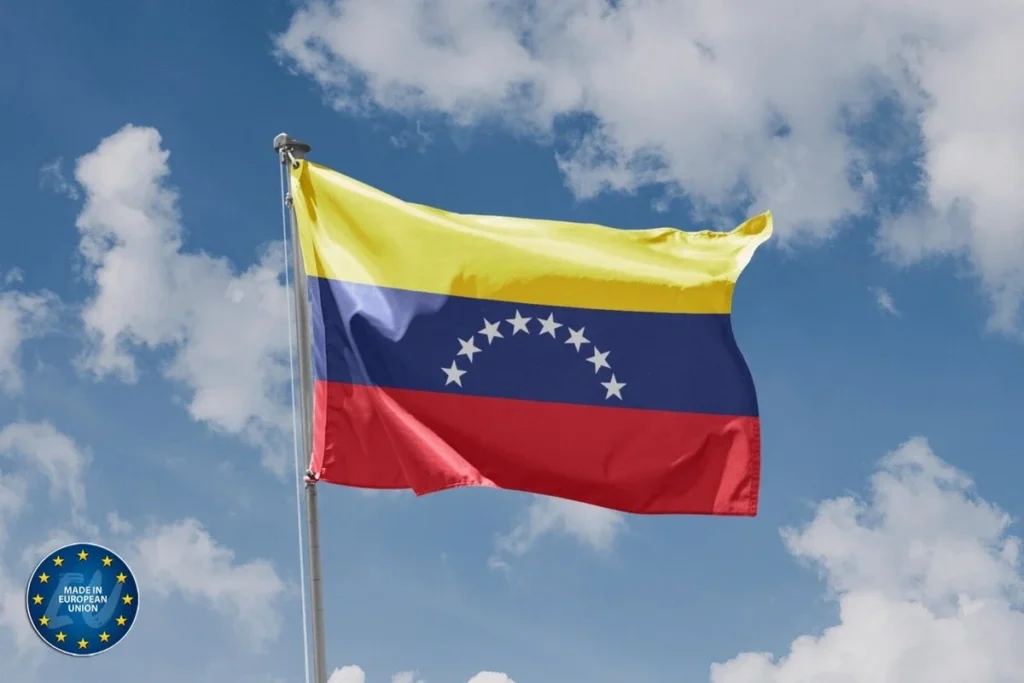
Why Sanctioned:
- Political Corruption: Authoritarian rule under Nicolás Maduro.
- Human Rights Violations: Widespread human rights abuses and repression.
- Economic Mismanagement: Poor economic decisions that led to a collapse.
Key Sanctions:
- Oil Industry: Sanctions targeting Venezuela’s oil exports.
- Banking System: Restrictions on Venezuela’s central bank and financial transactions.
- Government Officials: Sanctions targeting key government figures, including Maduro.
Economic Impact:
- GDP: Venezuela’s GDP contracted by 75% from 2013 to 2020, with a slight recovery in 2024 at 9% growth.
- Hyperinflation: Inflation was a staggering 3,000,000% in 2018, and remains above 1,000% in 2023.
- Oil Production: Venezuela’s oil production has fallen from 3.5 million barrels per day in 1998 to under 400,000 barrels per day in 2023.
Indicator | 2018 | 2024 |
Inflation Rate | 3,000,000% | 1,200% |
Oil Production | 400,000 bpd | 1,100,000 bpd |
GDP Growth | -25% | 9% |
Conclusion
Sanctions have become a staple in international relations, aimed at influencing political behavior. However, the countries affected by these sanctions, Russia, Iran, North Korea, Syria, and Venezuela, suffer far beyond the intended political pressure. From shrinking GDPs to soaring inflation and widespread poverty, the economic and humanitarian consequences are devastating. Understanding these impacts is crucial to evaluating the efficacy of sanctions and their long-term consequences.
FAQs
As of mid-2025, the countries facing the most extensive sanctions include:
- Russia: Over 16,000 active sanctions, primarily due to its invasion of Ukraine and associated activities.
- Iran: Approximately 3,616 sanctions, mainly concerning its nuclear program and regional policies.
- Syria: Over 3,000 sanctions, largely due to its civil war and governmental actions.
- North Korea: Over 2,000 sanctions, primarily related to its nuclear weapons program and missile tests.
- Belarus: Over 1,500 sanctions, especially intensified after 2020 due to election rigging and support for Russia’s invasion of Ukraine.
Sanctions can vary in nature but commonly include:
- Financial Restrictions: Freezing assets and blocking access to international financial systems.
- Trade Embargoes: Banning or restricting the import and export of goods and services.
- Travel Bans: Prohibiting entry into sanction-imposing countries for designated individuals.
- Investment Bans: Restricting or prohibiting investments in certain sectors or entities.
- Secondary Sanctions: Targeting third-party countries or entities that engage in prohibited activities with sanctioned nations.
Sanctions can have profound effects on a nation’s economy, including:
- Currency Depreciation: Loss of investor confidence can lead to a decline in the national currency’s value.
- Inflation: Restricted access to goods and services can drive up prices.
- Unemployment: Economic downturns can lead to job losses in various sectors.
- Reduced Foreign Investment: Sanctions deter foreign investors due to perceived risks.
- Supply Chain Disruptions: Trade restrictions can interrupt the flow of essential goods and services.
Yes, several notable developments have occurred:
- Syria: In May 2025, the U.S. lifted broad sanctions against Syria, signaling a shift in policy.
- Russia: The U.S. introduced the “Sanctioning Russia Act of 2025,” proposing extensive new sanctions if Russia refuses to negotiate a peace agreement with Ukraine.
- China: The U.S. put pressure on China, imposing sanctions related to its support for Russia and its technological advancements.
Yes, OFAC (Office of Foreign Assets Control) can enforce sanctions on foreign countries. It administers and enforces economic and trade sanctions against targeted foreign countries as part of U.S. foreign policy and national security objectives.
Yes, OFAC possesses the legal authority to enforce sanctions on foreign countries, including blocking assets, restricting trade, and penalizing violations of U.S. sanctions programs.






